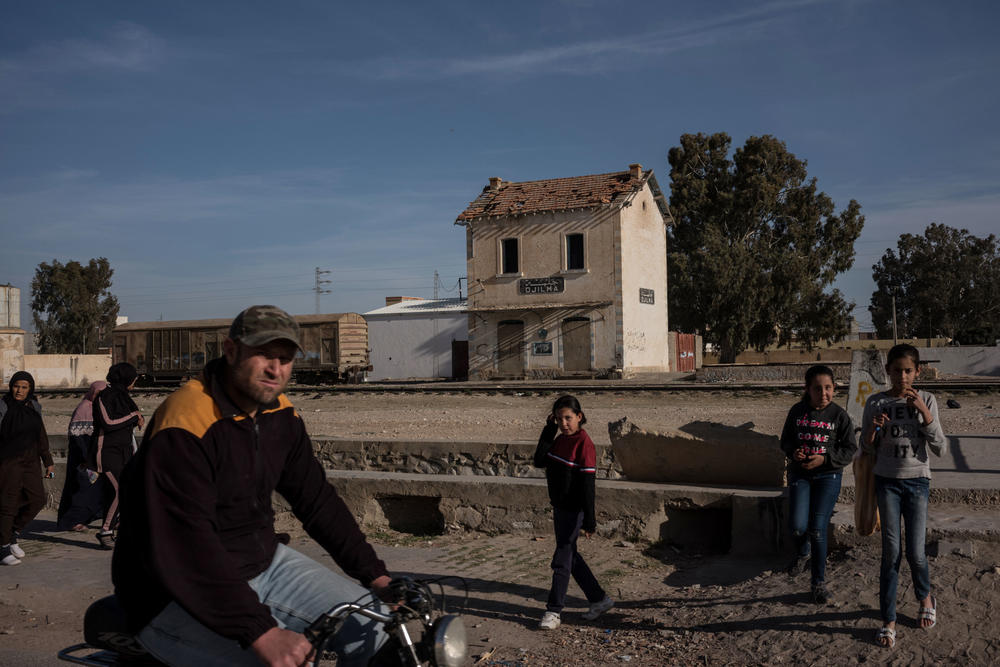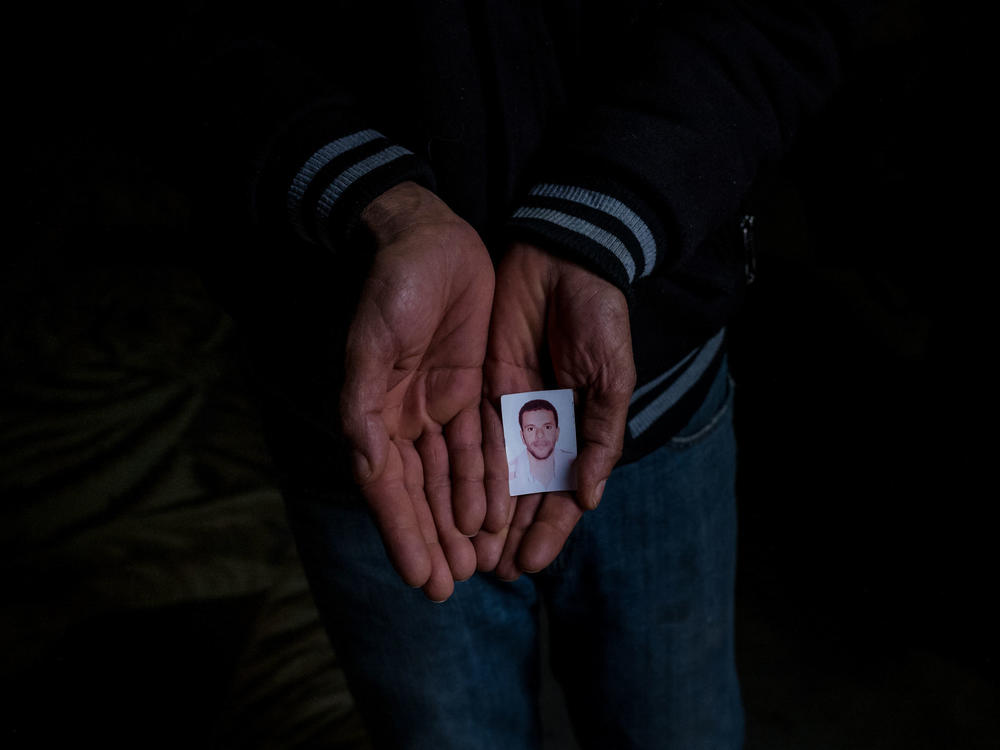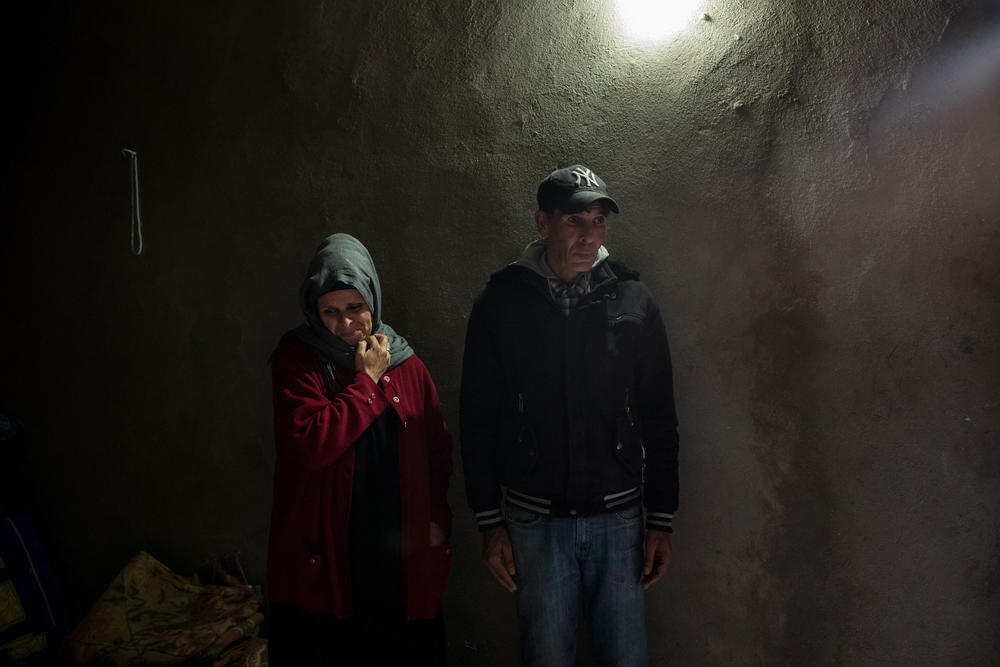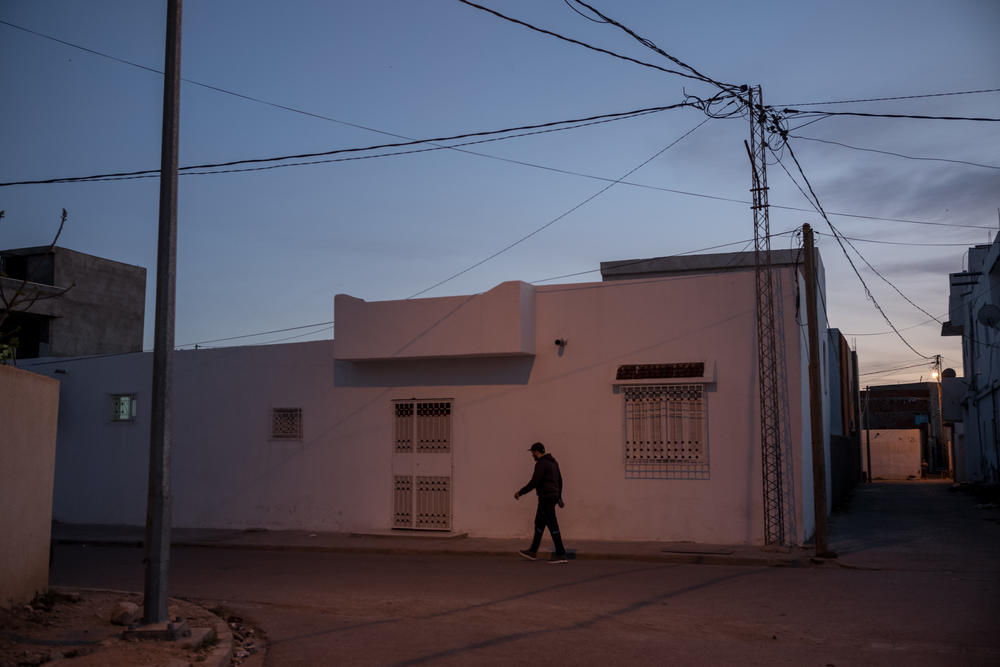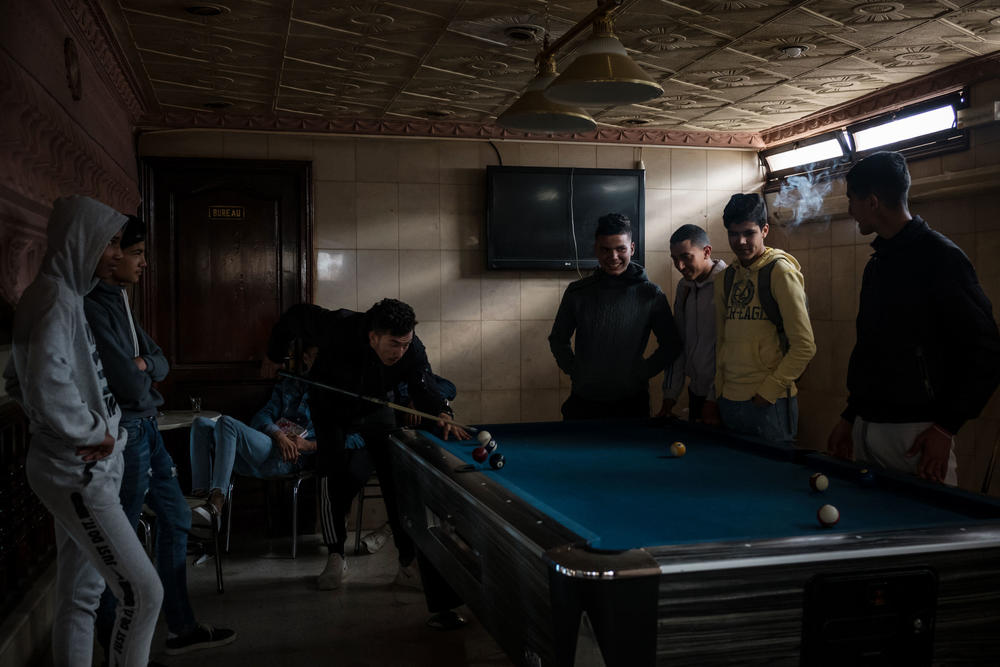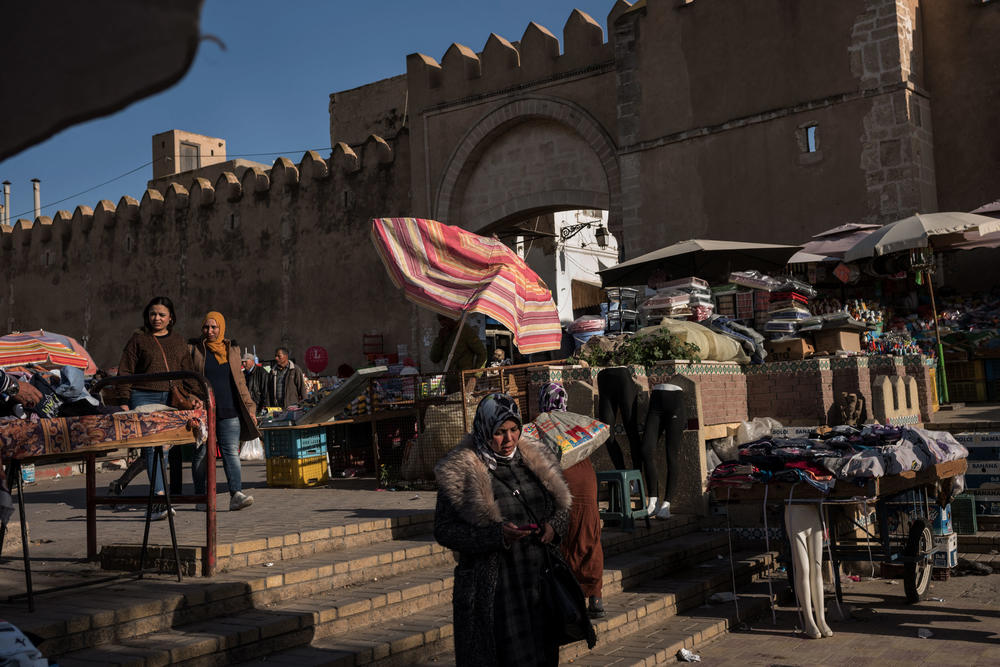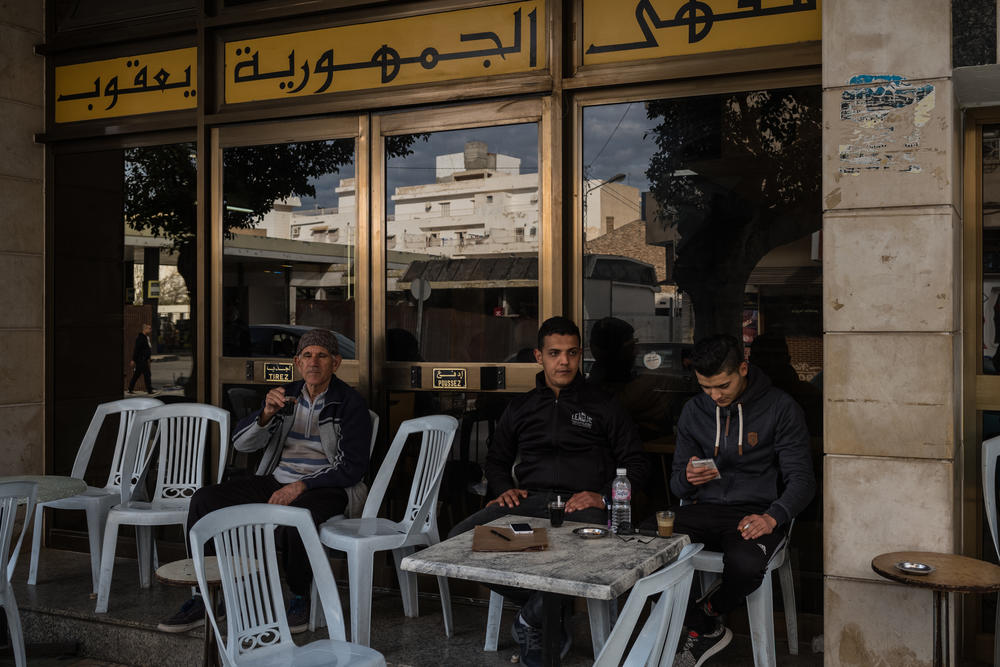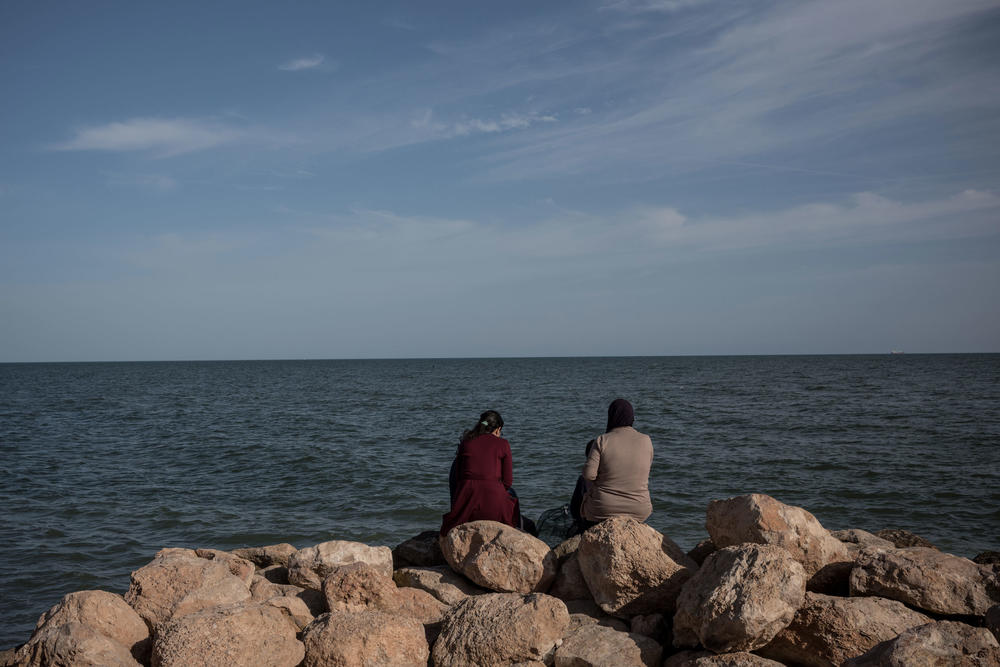Section Branding
Header Content
Tunisia's Youth Still Struggle A Decade After The Uprising
Primary Content
Note: This piece contains a disturbing description of self-immolation.
In the middle of Jelma, a town of roughly 6,000 in Tunisia's interior, a light wind picks up dust on a colonial-era built railroad that's no longer in use. Several people walk over the worn tracks going about their business in a place that largely feels abandoned by the government.
Only about 21 miles away is the city of Sidi Bouzeid, where, in December 2010, produce vendor Mohamed Bouazizi, 26, set himself on fire after being regularly harassed by police. He died nearly three weeks later, kicking off youth-led anti-government protests and ultimately, the Arab Spring.
Then this past December, nearly a decade on from the uprisings, Jelma became the flashpoint of renewed violence after another young man, Abdelwaheb Hablani, 25, self-immolated in an olive grove to protest poverty and poor living conditions. Hablani, from an impoverished family, worked as a day laborer and had not been paid in nearly two years.
"People who saw him there said he raised his hands to the sky and shouted, 'Oh, God, they have been unjust with me!' before pouring fuel over himself and then setting himself on fire," his father, Jilani, said.
Farmers put the flames out, but Hablani later succumbed to his injuries.
His desperation and act of suicide sparked protests and clashes with police. For three days roads were blocked as young people again took to the streets to call for greater equality and more economic opportunities.
Jelma suffers from a host of issues common to many Tunisian towns that make for, as one resident put it, a "recipe for an explosive situation." Since the 2011 revolution, there's been high poverty, inaccessibility to clean water, lack of municipal transportation and other public services and high unemployment.
For a country that was already grappling with deep socio-economic problems before the pandemic, the expected fiscal fallout will no doubt only aggravate tensions. Protests against the Tunisian government's lockdown broke out in late March as newly unemployed citizens struggled to feed their families.
Young Tunisians are angry that conditions have worsened since the uprising. Many decry widespread corruption and are frustrated at the lack of job opportunities as the unemployment rate for 15-to-24-year olds has climbed to double the national average.
According to the Tunisian Observatory for Democratic Transition, a think tank, personal and professional connections — not schooling and relevant skills — are still the preferred metric to get a job.
And young Tunisians don't trust the political process to make improvements.
"After the revolution, much of the youth were excluded from politics and were not involved in the political process," said Hafedh Chekir, a demographer with the Tunisian Observatory for Democratic Transition. It led vast swaths of youth to disengage in formal politics.
It's also led to suicide — often as self-immolations outside municipal buildings — as a form of public protest. It has become a way of emulating Bouazizi's 2010 act to demonstrate the depth of despair, revealing how poverty and the lack of opportunities have left young people feeling like dying will at least mean something, when living doesn't.
At a youth community center near the town of Sfax in early March, two actors rehearse a scene from a play about young Tunisians migrating to Europe in search of a better life. In it, one actor plays an unemployed man who walks into a Tunisian employment agency hoping to find a job, only to be met by an uninterested agent playing video games on his phone. The agent's apathy spurs the unemployed man into wonder whether he should just leave the country for Europe.
It's how many young Tunisians feel. For them, leaving seems better than staying, where they say living seems futile.
This story was supported by The GroundTruth project with additional reporting by Shelby Ben Brahim. It was reported in the region before the coronavirus pandemic.
Copyright 2020 NPR. To see more, visit https://www.npr.org.
